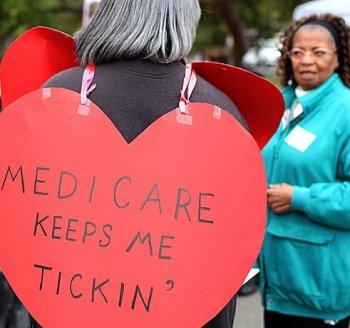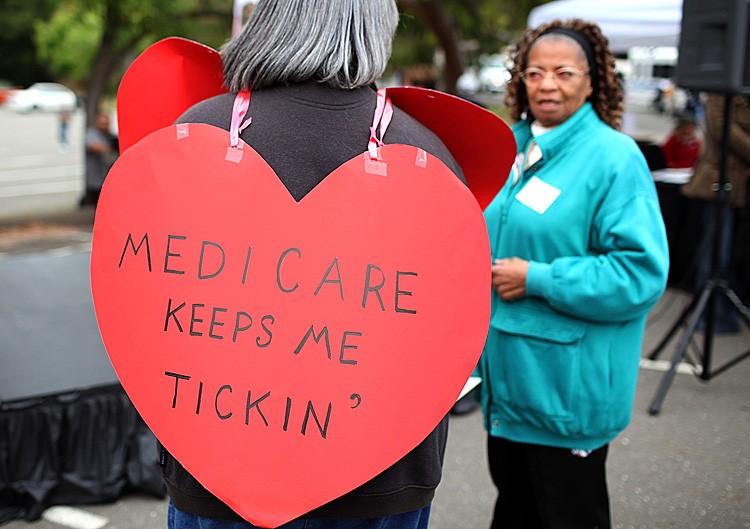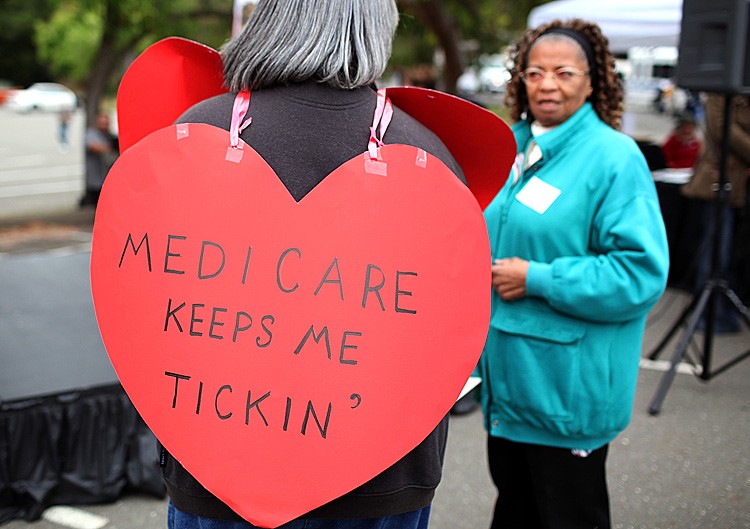Retain Entitlements—Jettison Earmarks and Corporate Welfare
Don’t even dream of touching Social Security, Medicare, or Medicaid when seeking ways to reduce the budget, said over 60 percent of people polled in a 2011 Pew Research Center survey.

ENTITLEMENTS: A senior citizen holds a sign during a rally to protect federal health programs at the 8th Annual Healthy Living Festival in Oakland, Calif., July 15. Justin Sullivan/Getty Images
|Updated:





